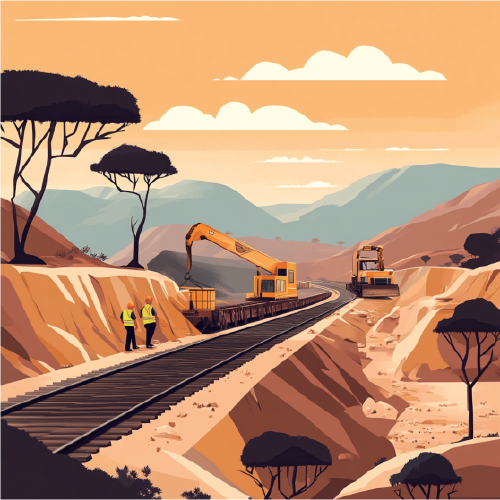
WANG XIAOYING/CHINA DAILY
As a young Egyptian growing up in Tanzania's port city of Dar es Salaam in the early 1970s, Maged R Aboulmagd used to watch in admiration the convoys of trucks ferrying Chinese workers to the construction sites of the Tanzania-Zambia Railway, which would link landlocked Zambia with the outside world via Tanzania.
Over the next half a century, Aboulmagd would be assuming various roles in Egypt's foreign missions in different countries, including Nigeria and the United States, and later as Egyptian ambassador to Guatemala, Honduras and El Salvador.
However, the childhood experience of witnessing the Chinese workers building the landmark Tanzania-Zambia Railway could not be erased from his mind. That became the start of his journey to know more about China.
"My father used to tell us about the big project underway when he saw trucks ferrying Chinese technicians through the city. It was a particularly eye-catching sight as I remember them wearing cone-shaped hats and waving to bystanders. Everyone knew they were building a railroad to Zambia," Aboulmagd, now a member of the Egyptian Council for Foreign Relations and a member of the Egypt-China Friendship Association, recalled in an interview with China Daily.
His father, a hydrologist, was then sent to the East African country for work-related reasons, and he took his family along.
The 1,860-kilometer railroad, built through the friendly cooperation between China, Tanzania and Zambia, was officially inaugurated on July 14, 1976, after five years and eight months of construction. It is one of the biggest projects built with Chinese assistance in Africa.
From a boy waving to Chinese workers, Aboulmagd graduated to engaging Chinese people when he served as an Egyptian diplomat in Lagos, Nigeria, from 1989 to 1991.
Close contacts
"I had close contacts with Chinese diplomats exchanging house visits. I was invited many times to the Chinese embassy to watch 15-20-minute movies, most of them about new Chinese mega projects like ports in China," he said.
"Every foreign diplomat was interested in the content of the movies, but very few anticipated the huge success these ports had in transforming China into a trading giant that it is today," he said.
During his term in Chicago as Egypt's consul-general from 2011 to 2015, US-China relations were the focal point in global affairs. He attended every seminar about China organized by the Chicago Council on Global Affairs.
"Most speakers from the business community and former politicians at that time were talking about the importance of improving trade and political relations with China as an imperative and not a choice," Aboulmagd said.
He also served as Egypt's ambassador in Guatemala, Honduras and El Salvador from 2017 to 2020.
"During my stay, El Salvador recognized one China and later Honduras made the same move," he said.
Over the past few decades, Aboulmagd has been impressed with the transformation of China in many aspects, including China-Africa relations.
He said China-Africa relations have evolved greatly in the last three decades. In particular, the partnership has seen a great step forward since the implementation of the Belt and Road Initiative, he added.
"We have all witnessed during the last decade how the Belt and Road Initiative grew from planning to execution. Today, the BRI is a global economic endeavor like no other, an important and far-reaching project," he said.
He lauded China's ability to devise effective tools to finance and build projects in telecommunications, infrastructure and industry.
"These Chinese advantages will certainly continue to expand relations and benefit both Africa and China," he said.
The role of China on the global stage, he said, will evolve gradually both in scale and quality. Additionally, China's new focus on innovation, technology and space will have a significant impact on how the world interacts with the Asian powerhouse, he said.
"Developing countries will look up to China to lift their populations from poverty, improve their economies, as well as create more jobs," he said.
"The friction between China and the West will unfortunately continue. More Western pressure is expected on Chinese companies, yet the more China invests in its relations with developing countries, (the more) these pressures will be less effective and less harmful," he said.